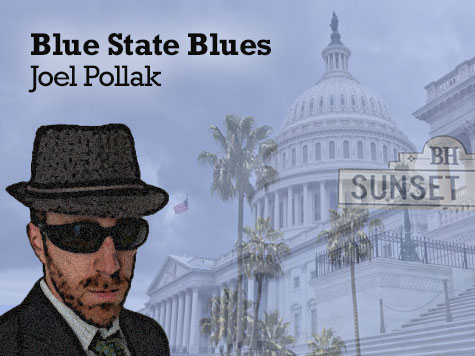This Thanksgiving was more politicized than any in recent memory. More than the last one, after Barack Obama won re-election after four disappointing years. More than the 2008 Thanksgiving, which happened right after that bitterly contentious campaign, and when Slate.com posted one of the first collections of “talking points” for both sides in dinner-table political battles. This one was worse–and in an off-election year, to boot.
In most political disputes, each side can blame the other. But the blame for attempting to ruin this holiday rests, indisputably, with President Obama, who encouraged supporters to spread the good word at the Thanksgiving table about Obamacare, and to convince their irresponsible relatives that they should sign up for overpriced health insurance on government websites that still do not work, despite the much-ballyhood “tech surge.”
Instead of talking points to win arguments, America is sorely in need of talking points to resolve them. Things like: “I agree everyone should be able to buy health insurance, even if I don’t agree they should be have to buy it through government.” “I agree that we should try diplomacy, even if I don’t agree that we should trust Iran.” “I agree that we should have compassion for the poor, even if I don’t agree that it should be forced.”
So when I packed for our family’s Thanksgiving trip, I left the politics behind. (Mostly, anyway–I did bring along a Chris Christie biography, which for a Tea Party stalwart like me is something of a concession to the holiday spirit.) We took the “nerd bird” from L.A. to San Francisco and joined my brother and his girlfriend at their new home. They’re not particularly political, but some of their friends are, and their adopted city certainly is.
The Bay Area is like America’s internal opposition. I would like to be able to say that in the Framers’ unique genius, they contemplated a place that dissented in almost every possible way–kicking soldiers out of Berkeley, inventing strange new regulations daily, flouting drug laws, turning gay culture from a private pursuit into the bedrock of a civic culture. Yet somehow I don’t think the Framers would have believed it themselves.
My brother picked us up at SFO in his new Nissan Leaf, a neat electric-powered vehicle that, sadly, seems to run out of battery life faster than last year’s iPhone. (It started the trip at 88% and ended at 74%; by the time we made it downtown after dinner, the poor buggy was down to 65%.) Somehow the chilling fog that has haunted every previous trip to San Francisco had dissipated, and the city was bathed in cool autumn sunlight.
It always seems to be late afternoon in San Francisco. And so it was when we pulled into Bernal Heights, a neighborhood in the city’s “banana belt”–so named because it gets less of that cruel fog. Bernal Heights is a monument to the strange cult of urban preservation: many of the homes are former “earthquake shacks,” temporary shelters from the apocalyptic 1906 quake. In other words, it is a delightfully gentrified refugee camp.
Unlike much of the “childless” city, which has fewer children per capita than any other in the U.S., Bernal Heights is kid-friendly, with quiet streets and a playground or two. It is a favored destination for lesbian families that want to settle down, my brother said. In that sense, it is at the cutting edge of a great cultural experiment. But it lacks the swagger of, say, the Castro district. It’s out of the closet, but still inside a Norman Rockwell painting.
We took my 22-month-old daughter for a walk to the park, along with my brother’s dogs, one of whom is a fierce pit bull named McLovin. My wife took the baby to the swings as my brother kept the dogs on a tight leash outside the fence-ringed playground. Kids in helmets practiced crashing their scooters into the playground sand. Silhouettes of hikers wandered along the crest of the hill above the impossibly pretty late Victorian rooftops.
On the way back for dinner, the quiet streets were filled with young couples carrying Tupperware, leaving for dinner or arriving at one. One house had a garage open to the street. Inside was a brightly-colored den, hung with rugs and graced with a big-screen TV. A transvestite with enormous biceps and a power-blue bustier chatted cheerfully on a cell phone. A rusting set of classic cars lined one block, parked in apparent perpituity.
At dinner, the bird was delicious, the menorah–for this was Chanukah, too–brightly lit. I dipped my potato latkes into cranberry-apple sauce, a sweet-sour hybrid to celebrate the rare holiday mashup. We played music. We laughed. We spun dreidels. We left the politics out of it. Another dinner guest, I later learned, had ditched his Obama sweatshirt in deference to civility. I was particularly thankful for that. Thanksgiving as it should be.

COMMENTS
Please let us know if you're having issues with commenting.